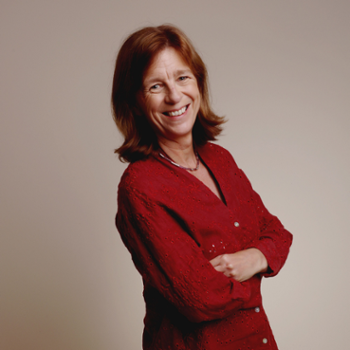We use cookies on this site to enhance your experience.
By selecting “Accept” and continuing to use this website, you consent to the use of cookies.

April 2025
LCMC's Research Assistant Cynthia Kinnunen (PhD Candidate, Community Music) recently had the opportunity to chat with Dr. Andrea Creech, Professor of Music Pedagogy at McGill University and Research Fellow of the Laurier Centre for Music in the Community.
Cynthia: You’ve shared that you have had a lifelong interest in relational pedagogy, which has had some connection with all of the research and teaching work you’ve done. Where are you at right now with your research interests?
Andrea: For many years, I’ve been working on research to do with music and aging, but more recently I’ve moved away a bit from the music, health and aging agenda and more towards musical development and creative experience in later life. I always had a parallel strand around musical development at various stages of the life course. I’ve really become interested in artistic citizenship and community engagement, and feel a strong sense of responsibility for the training and development of students, especially these in the context of higher education.
Cynthia: That term 'artistic citizenship' isn't well known, I think, at least not in North America. How would you describe this area of research?
Andrea: I think of artistic citizenship in terms of partnering excellent artistry with service to communities, and that's where I think it has something special to offer to higher education, particularly music programs focused on classical music training. If we say 'community music' in the context of a conservatoire training context, that can feel too far away from those students who are focusing on performance almost exclusively. Young musicians in performance training culture don't have enough focus on how they can use their skills in service of communities. They don't think of their music work as community music because they're not trained to think of it that way. But the term 'artistic citizensehip' opens up the possibility of talking about artistry and community service. It doesn't matter where you work as a musician, any orchestra or symphony, community engagement is always important for any working musician. Artistic citizenship can help young musicians to expand their understanding of how their artistry can be relevant within their communities, and ultimately can enhance the social relevance of higher education conservatoire training programs.
Cynthia: Do you have any recent projects you’d like to highlight around this work?
Andrea: In the space of artistic citizenship and community, I’m currently looking at how higher education institutions can learn from and serve Black and Indigenous communities, as well as considering, through a pedagogical lens, the ways that collaborative creativity is engaged with in advanced music training. I also have a book recently completed that looks at pedagogies for later-life music learning and participation, which is based on results from the SSHRC-funded Creative Later-Life research project.
Cynthia: You’ve also been such a great support for students, especially recently with the new PhD in Community Music cohort. Can you share a bit about your thoughts on community music from the perspectives and experiences you bring?
Andrea: There are many definitions and I don’t like to commit to a specific definition because I think it’s one of those terms we grapple with. To me, music is community music because it brings people together and there is always a community. I also feel like we sometimes fight against the idea that community music is something that’s perhaps dumbed down, that real musicians don’t do. But music in the community need not sacrifice excellence, and what I mean by excellence is that it is deeply meaningful to those who are involved in that music making and that will mean different things to different communities and people. I’m really interested in trying to embed a sort of ethos about community into our programs, how we serve communities.
Cynthia: As a current PhD student myself, I can say that you've been an invaluable mentor to the students of the Laurier Phd Music program (Community Music and Music Therapy) during your sabbatical this past year (2024-25), helping us nagivate important research topics like publication strategies, data collection practices, and navigating the journey of being an emerging researcher.
Andrea: Laurier in particular has a lovely community that i think is partly the PhD program structure and partly the mentorship of senior academics through the year. It's a good model for how you can structure that sense of community within an academic program. In a way, this links to artistic citizenship, not just because the PhD is focused on music making and community impact, but also because community is fostered within the program itself.
Cynthia: You seem particularly committed to mentoring graduate students, and you're really good at it.
Andrea: At this stage of my career, I think the biggest difference I can make is in supporting early career researchers and musicians, that's where my commitment is. This links back to community service. Higher education is my community, and this is where I feel I can have the biggest impact.